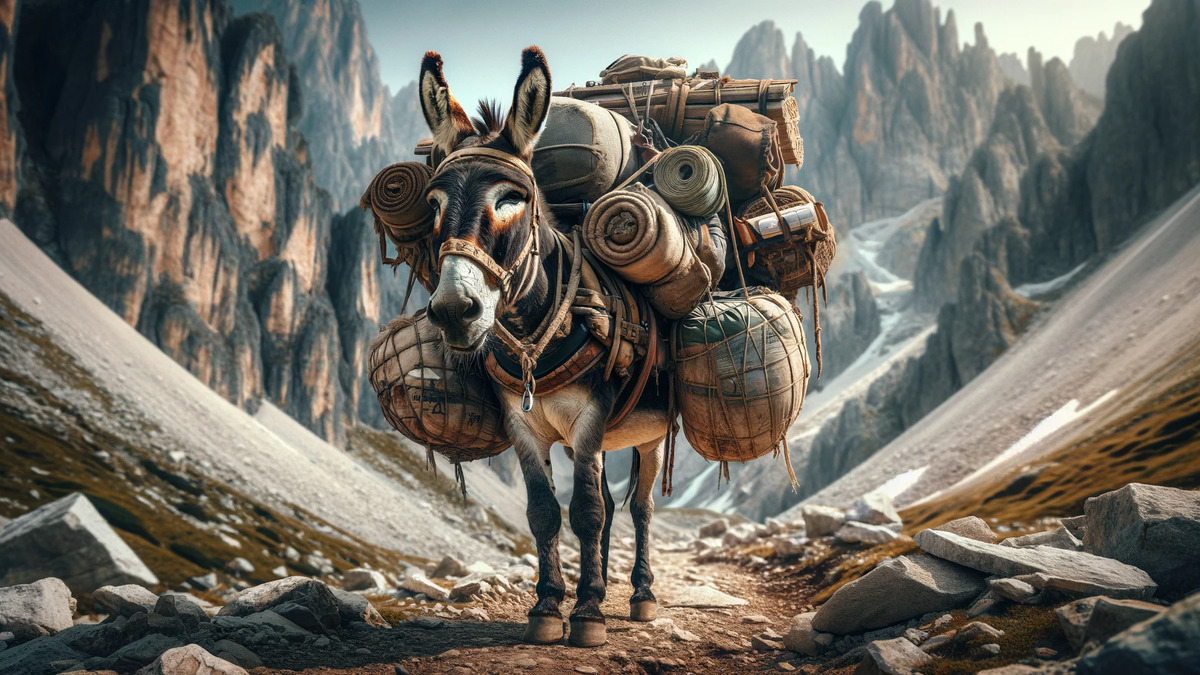Donkeys have an extraordinary memory; they have been observed to be able to recognize other donkeys and places they were with up to 25 years ago. Despite this often comical portrayal in popular media, donkeys are highly intelligent animals with a keen sense of curiosity and, when properly nurtured, are excellent problem solvers.
They are also extremely cautious creatures. This is a trait derived from their ancestors who lived in harsh desert environments. For the same reason, donkeys have a robust digestive system, and their digestive system seems to have evolved to handle the sparse, hardy vegetation of the desert.
A rasping cry. This cry lasts up to 20 seconds and can be heard over long distances.
Long life span. With proper care, domestic donkeys can live up to 40 years. Wild donkeys also have a relatively long life span, usually around 25 years.
They are compact, stout, and strong. As a result, they are less prone to injury than horses and can carry heavy loads.
Historically, they have been important cargo animals for human society because of their strength and stamina. Especially in developing countries, they were and are still used to carry heavy loads, pull carts, and even as passenger animals.
Their ears are much longer than those of horses, which helps them to dissipate heat, develop their hearing, and communicate with other donkeys. Donkey hooves are also stronger and more resilient than those of horses, contributing to their sure footing on rocky terrain.
Interestingly, there are approximately 44 million donkeys in the world, with the largest populations in China, Ethiopia, Pakistan, Egypt, and Mexico.
Donkeys usually consist of one male, several females, and their offspring.
Regarding reproduction. Donkeys have a longer gestation period than horses. The average gestation period is about 12-14 months. The average gestation period is about 12-14 months, and there is only one donkey calf.
One of the rarest species is the African wild donkey, especially the Somali wild donkey. This is the ancestor of all domestic donkeys, but is now endangered. Amazingly, there are only a few hundred individuals of that donkey left.
It is worth noting that when a male donkey, called a jack, is crossed with a female horse, it becomes a mule, and when a female donkey, called a jenny, is crossed with a male horse, it becomes a hinny. These hybrid animals have been used by humans for thousands of years because of their strength, durability, and longevity.
There is a unique emotional bond between donkeys that can lead to deep companionship. Such a bond is so strong that when a companion dies or is separated, the remaining donkey can suffer severe stress and even depression.
They are also more resistant to disease than horses. In terms of diet, donkeys are more efficient foragers than horses, and in addition to grazing, they often eat shrubs and bushes, allowing them to survive in environments where horses would starve.
Donkeys are also used in therapy and emotional support programs because of their calm demeanor, intelligence, and interactive nature. In addition, their protective instincts make donkeys effective guardians of small domestic animals such as sheep and goats.



コメント